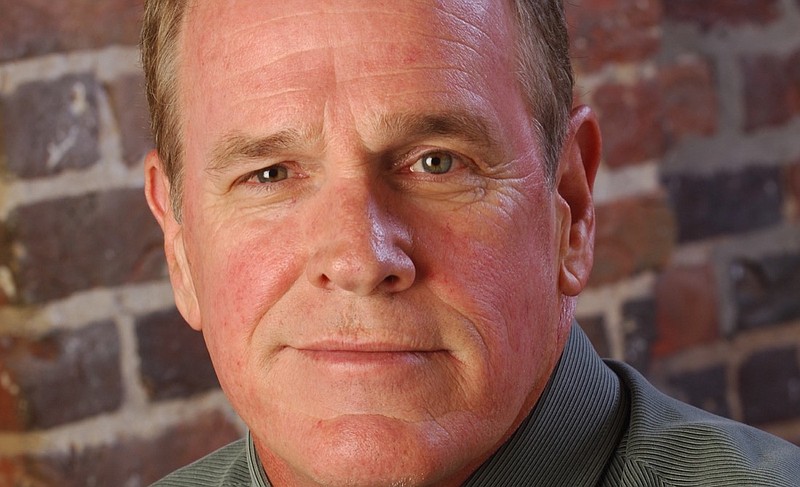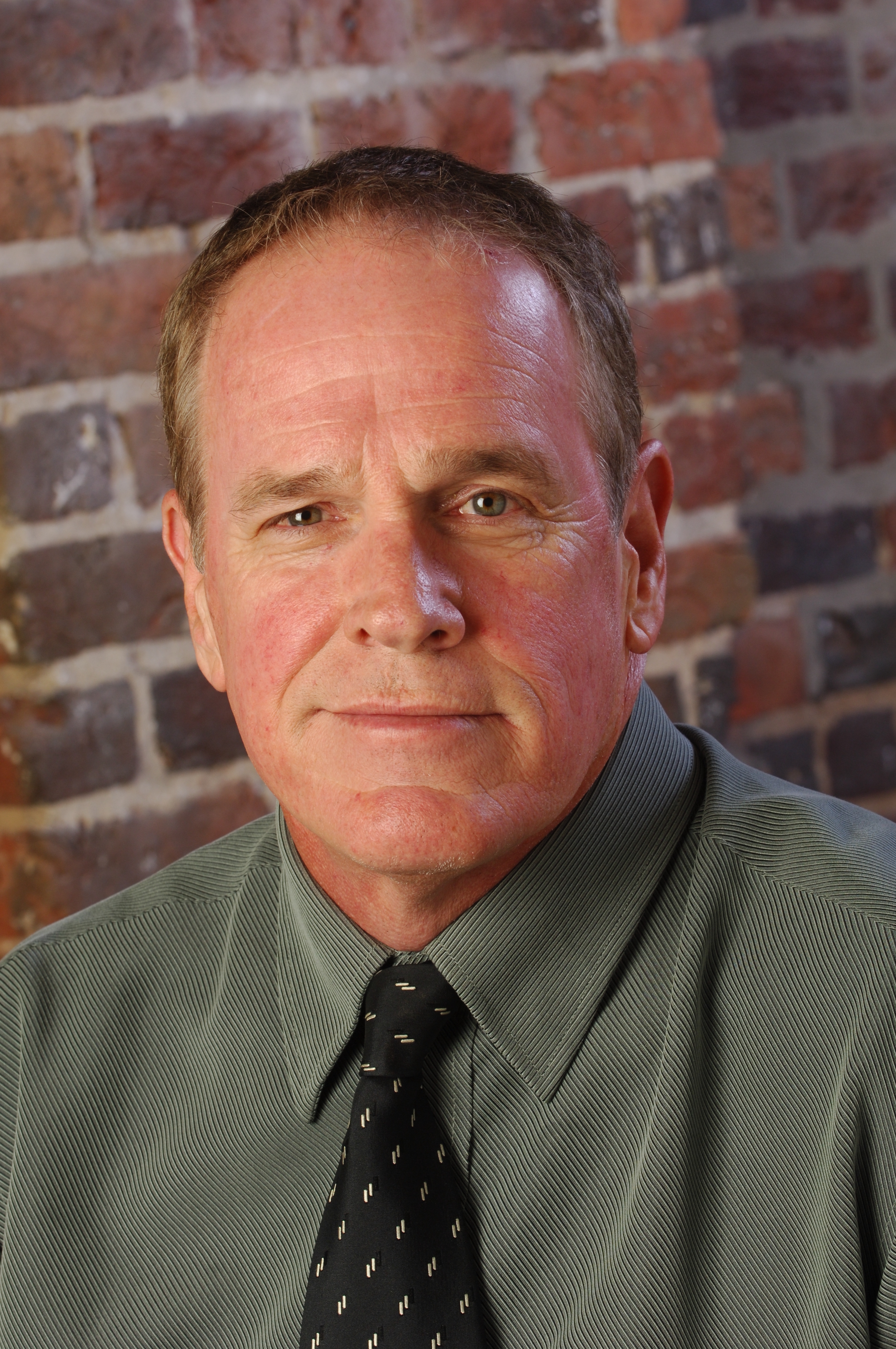Jim Place is managing partner of Evergreen Advisors, and host of daily financial radio show, "Let's Talk Money," on WGOW 102.3 FM. A financial advisor since 1983, Place has been keeping an eye on inflation and the ways it affects individuals and markets. In December, the Bureau of Labor Statistics reported the 12-month Consumer Price Index was up 6.8%, with gas, housing, food and vehicles leading the pack in increases. The price of used cars was up 31% and gasoline was up 58%, according to the bureau. In the Chattanooga area in November, the median price of a home was $280,000, up 13.6% from the same month in 2020.
"The only way you really drive prices back down is to slow the economy down," Place says. "We need to slow this inflation down if it's real inflation and not COVID-related, but how do you bring it down, how do you slow it down and how do you do that without creating a recession?"
This article has been edited for length and clarity.
Where does inflation come from? How does it start?
First let's talk about what it is – it's an abrupt increase in the cost of goods and services. In a capitalistic economy, the environment grows, expands, contracts, and it overcorrects like markets; they do the same thing. It'll go up and up and up, and it's obviously inflated, and then you see a market correction. It overbuys, it oversells and ultimately, over a period of time, it finds equilibrium. So how do you get inflation? Generally, the overall economic environment overheats, the demand for goods and services gets higher and higher and higher.
Two entities can help control inflation – they can bring money into play and out of play. We're talking about monetary policy that the Federal Reserve controls, and fiscal policy that the Congress controls. The last time [inflation] was a really big, dramatic issue in the U.S. was the end of Nixon administration and the four years of the Carter administration. They raised interest rates to 18% or 20%, they were trying to drive prices back down. The only way you really drive prices back down is to slow the economy down. We need to slow this inflation down if it's real inflation and not COVID-related, but how do you bring it down, how do you slow it down and how do you do that without creating a recession?
We keep hearing that this inflation is 'transitory.' What's that all about?
You heard the term last year, at the beginning of 2021 when you began to see these pricing pressures come about – 'transitory.' I thought it was a weird term. Inflation is always transitory, you have it until it adjusts, but what they were really saying is the inflation we were seeing in 2021 was COVID-related, short term, and supply chain-related. For example, there weren't enough computer chips to complete autos, so there were less autos for sale, the price of the remaining autos went up – that was very COVID-related. Where the Federal Reserve was at the beginning of 2021 was, to the extent we see these upward pressures, they're transitory and COVID-related. That's partly true, but look at the monetary policy – how long have interest rates been near zero? Since they took them down in 2008 they've pretty well left them at zero for 13 years. In essence, we've had a monetary policy that's been very, very accommodating for a long period of time.
How do different factors influence inflation for different goods and services?
Look at housing. Ever since the downturn in 2008 and 2009, lending standards got a lot harder for building, developing, buying – you had underbuilding to the extent of 500,000 or 600,000 units every year, and now you're underbuilt by 7 million or 8 million units. This is a supply-and-demand issue, it's not short term, and it's not going away for the foreseeable future. Which is completely different from the computer chip issue. Housing also has some increases because of COVID supply chains – it's now taking 14 or 15 months to build, and the overall pricing is driven by supply and demand. But if you look at housing, the increase in the value of your home historically in Chattanooga in the past 30 years, it's been 1.5% to 2 % a year and it's suddenly 20% in 12 months. We are still significantly lower than in other parts of the country, but do I think housing prices are going to significantly retreat? I don't. The auto industry is in the same escalation of prices, but for a completely different reason than the housing industry. If you're the public, you're just looking at inflation as one thing. It will resolve itself – it always has – but you have a lot of issues out here right now. Monetary policy, borrowing, supply chain issues, supply and demand, building supply and demand. It looks like one problem but it's really 10 different problems. You can't simply say this is COVID-related. Maybe one thing is impacting it more than another, but overall if you're looking at how you slow inflation down, you raise prices until you can't afford it, the federal reserve raises interest rates and contracts the money in the system and tries to slow the thing down without running it into the ground.
Did emergency funds flowing to people prompt some of the inflation?
We had money flowing in - you had the $600-a-week federal supplement on unemployment, four stimulus checks, the child tax credit, and all the people who continued to work couldn't fly, travel, take vacations, everybody started saving money. In 2021, everybody's got money and these supply chains at the same time are kind of clogged up and everyone wants to buy goods and services. You've got too much money chasing too few goods and services.
Inflation is hard on consumers, but can it have upsides for anyone?
Yes, if you own real estate and stock in this environment. If you really look at the longer-term structure and pricing in the stock market, it is built on the underlying earnings of those publicly traded companies. In 2020, the American government and all of its entities decided to shut the country down to stop COVID and flatten the curve – they flattened the U.S. economy. It was completely self-induced and probably didn't end up changing the scope of where we are now, but the market goes down 35%. Then it immediately starts to move back up, and now it's 35% higher than the previous all-time high. You were driving around downtown Chattanooga, and it was empty. How many of those people who weren't at work were still gainfully employed? So we had people who buy goods and services – they went online, they shopped, they saved a little bit more money, but the underlying earnings of Proctor & Gamble and the technology industry as people began to rely on IT because they were using those systems, the profitability of these companies was strong and the stock market rocketed back up. Who benefited from that? All of us who own stock. Who benefits from real estate prices? Well, what happens if you sell it? If you have rental properties and you're ready to liquidate, you own an asset that's worth significantly more. Who benefits? Billionaires got richer because they own assets. But if you don't own stock and you don't own real estate and you're making $50,000 a year and the price of everything goes up 10%, you are really impacted by inflation. Everyone will be impacted, but if you're making $55,000 and I'm making $200,000, I can withstand it better.
What are some of the ways we'll start to see inflation ease?
How do you get out of it? It ain't easy, and it takes a while. When COVID started, when the stock market took that big hit, what people don't realize is the bond market fell the same way, but the bond market is supposed to be very stable. But the bond market started to get unstable, so the Federal Reserve stepped in and started buying government bonds. To get a more favorable rate, there has to be demand. The Federal Reserve created artificial demand by becoming the buyer of the bonds – they become a major purchaser of these bonds, and they have been doing that for two years. The Federal Reserve announced they're going to slow this quantitative easing and back out of bond-buying.
We've got to unclog the ports, the Federal Reserve accelerated the end of quantitative easing – that will shrink, and once we do that we'll slowly begin to raise interest rates, at least three times in 2022, so they're stopping the bond-buying and raising the price of money, which should begin to slowly slow down the economic environment. They can begin to ease some of that inflation, but you can't do that without slowing the economic environment down.

